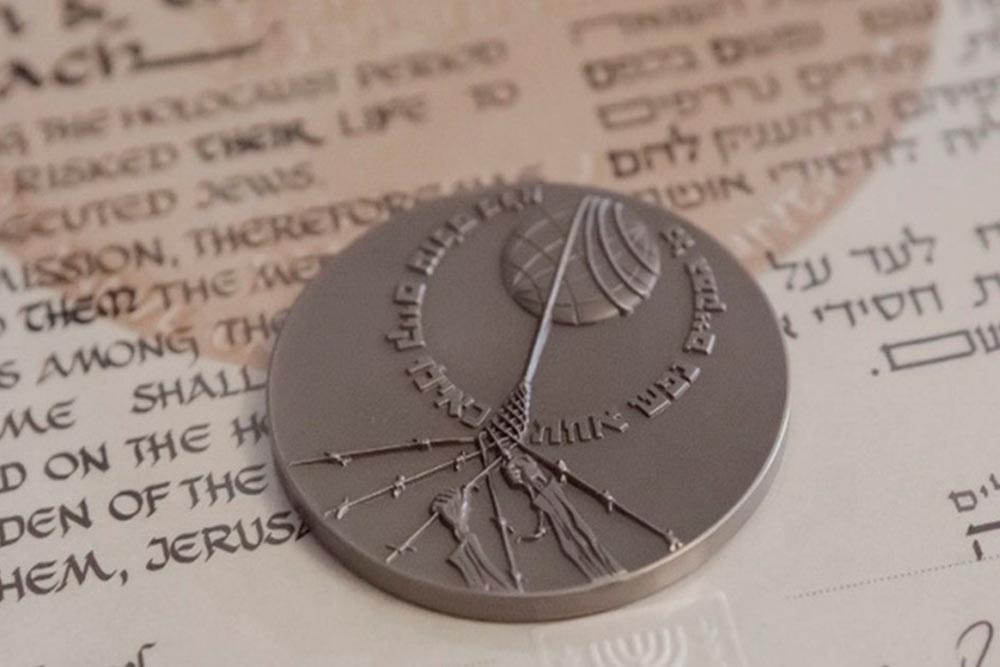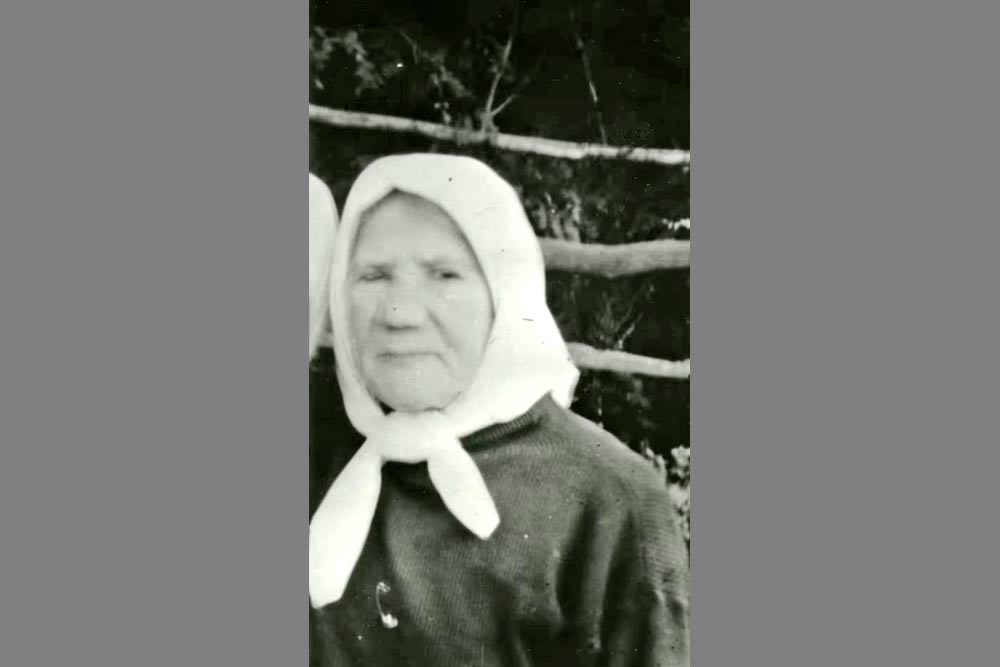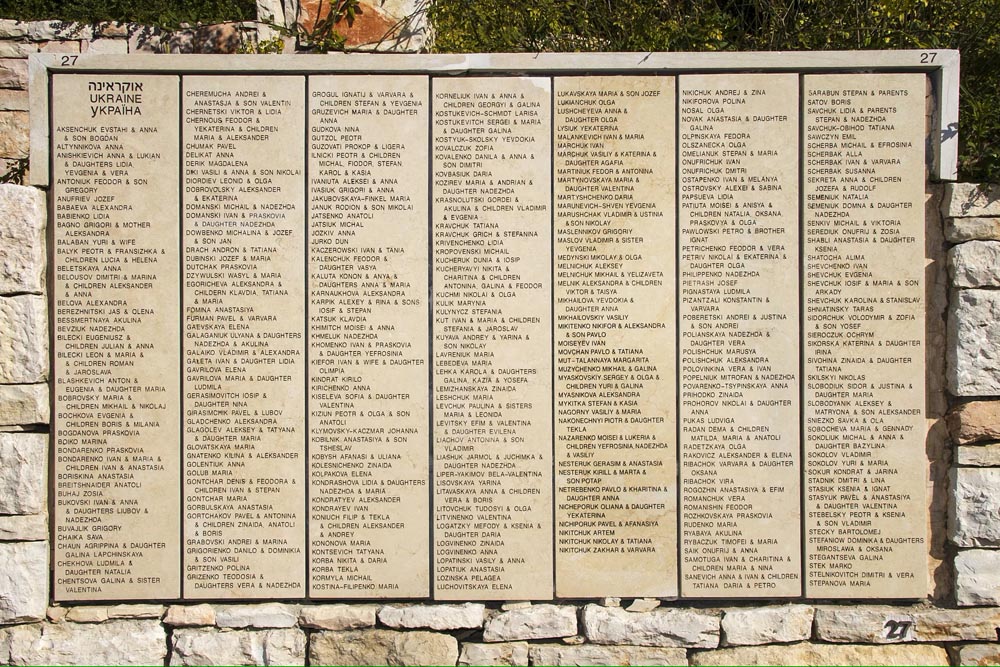Bank of Portraits / Riaba Kylyna, Bezsmertna Kylyna

Riaba Kylyna, Bezsmertna Kylyna
Kylyna Riaba lived with her mother in the village of Ivanhorod (current – Uman district, Cherkasy region). After the occupation of the region at the end of July 1941, the Nazis began to implement the "new order". In May 1942, a labor camp was created in the village. His first prisoners were hundreds of Jews from the nearby village of Teplyk in Vinnytsia region, who were held in the building of a local school. Living conditions were inhumane: prisoners lived in cramped classrooms, were fed twice a day with inedible watery soup. Every day, prisoners were sent to the most difficult jobs, including road construction.
Kylyna Riaba and several other residents of the village of Ivanhorod sincerely sympathized with the unfortunate. At night, secretly from the guards, they approached the fence and threw boiled potatoes and other food. That is how the girl met the Klauz family – Yosyp, his wife Tatiana and their daughters: 19-year-old Mariia, 16-year-old Bronia and 13-year-old Dina.
When the Jewish prisoners finished the construction of a section of the road near the village of Ivanhorod, the camp was temporarily disbanded, and they were transferred to other places. Then Kylyna lost contact with the Klauz family.
In the summer of 1942, the Nazis restored a labor camp in the village of Ivanhorod. During the year of its existence, from several hundred to a thousand prisoners visited it: Jews, Soviet prisoners of war. They were brought to fulfillment the most shameful jobs, and then sent to other labor camps: in the villages of Oradivka, Talalaivka, Ositna (current – Umansky district of the Cherkasy region), and others. There were cases when prisoners were shot. For example, in the spring of 1943, in connection with the uprising in the Warsaw Ghetto, 90 hostages, mostly elderly people and children, were taken from the camp and sent to the village of Krasnopilka (current – Haysynskyi district of the Cherkasy region), where they were later executed. Because three prisoners escaped from the camp in June 1943, the Nazis killed 13 hostages. Residents of Ivanhorod was horrified by these events. The occupiers threatened death for helping the condemned.
At the end of December 1943, the Klauz family contacted Kylyna again. Tatiana said that Yosyp died, and she and her daughters managed to escape from Nazi captivity. The fugitives asked to shelter them at least for a few days. Kylyna was aware of the danger that threatened her in case of exposure, but compassion prevailed. The girl hid the Jewish women in the attic of the house and shared her meager food supplies with them for several months. Unfortunately, the neighbors suspected that there was someone other than the owners on the yard of the Riaba family. Kylyna did not tell her own mother about the fact that she was helping the Jews. Even when the mother began to wonder why the food ran out so quickly, she did not dare to tell her the truth, so she had to ask the fugitives to change their hiding place. The Klauz family turned to Kylyna Bezsmertna, a resident of the villag of Ivanhorod, which also supported the prisoners of the camp. Despite the danger to herself and her young daughter, the woman took four Jewish women into her home and hid them for several weeks – until the Nazis expelled her in early March 1944. Already in the post-war period, the woman said that during the German occupation she repeatedly came to the aid of those who turned to her, and provided shelter to other Jewish families and Soviet prisoners of war – fugitives from the camp. They all spent a day or two at her house before continuing on their way.
After the departure of the Wehrmacht units, the Klauz family returned to the village of Teplyk. Later, they learned about the death of their savior, Kylyna Riaba: the girl died in a fire in her apartment. Tetiana and her daughters kept in touch with Kylyna Bezsmertna for a long time.
In 1995, Kylyna Riaba and Kylyna Bezsmertna were awarded the title of Righteous Among the Nations.
Svitlana Datsenko
Kyiv
National museum of the History of Ukraine in the Second World War
-
fingerprintArtefacts
-
theatersVideo
-
subjectLibrary

